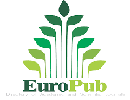Prenatal Diagnosis of Thalassemia: Practices among Parents of Thalassemia Major Patients
Abstract
Objective: To evaluate the practices and attitudes of parents of thalassemia major patients towards chorionic villous sampling (CVS). Patients & Methods: A cross-sectional study was conducted at thalassemia centre at Pakistan Institute of Medical Sciences in the months of July and August 2011. Information regarding CVS was taken from parents of 100 registered β thalassemia major patients. Parents with no history of pregnancy after index case, parents of α thalassemia patient and those with other haemoglobinopathies were excluded from study. Results were entered and analyzed on SPSS version 17. Results: After the index only 28 families underwent prenatal diagnosis of thalassemia by CVS. There were 72 families in which CVS was not done. Out of these it was not advised in 48 families and there were 24 families in which it was advised but they did not opt for it. Various reasons for this included health, religious and social issues and also the risk of miscarriages. When they were asked for CVS in future pregnancies, majority (67%) said yes but 33% were still not convinced to go for CVS in future. Conclusion: Prenatal diagnosis of ß-thalassemia by CVS is available in Pakistan for over a decade but its use remains limited. The main reasons for the limited use were that either they were not advised, or they did not opt for it for cost, health, social and religious issues. There is a need to impart awareness of the procedure particularly addressing the above mentioned issues.

This is an Open Access article distributed under the terms of the Creative Commons Attribution-Non Commercial License (http://creativecommons.org/licenses/by-nc/4.0), which permits unrestricted use, distribution, and reproduction in any medium, provided the original work is properly cited.













